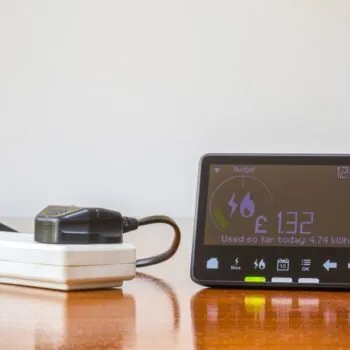Read the report by E3G and RAP here.
Heat pumps are widely seen as a central element of the UK’s transformation to net-zero compatible heating. This paper considers the practical choices that policymakers face supporting the deployment of heat pumps to achieve a net-zero UK.
The government’s current target of 600,000 heat pumps installed annually by 2028 is ambitious, but it falls short of the deployment levels recently suggested (900,000 per annum) by the Climate Change Committee (CCC). It is clear that existing and proposed policy is currently insufficient to drive the market at anything near the required deployment levels. The still active Renewable Heat Incentive (RHI) is set to deploy less than one-sixth of the domestic heat pumps it intended by its original end date of April 2021. Other existing and planned programmes will not significantly increase the amount of heat pumps deployed, pointing to a policy gap. This paper examines how this gap can be closed and the targets met.
To achieve sensible and sustainable scale-up of the market for heat pump retrofit, its growth in homes on the gas grid needs to be driven now, in parallel with off-gas and newly built homes. This will require a much fuller, longer-term and more coordinated set of policy interventions than the limited measures presently planned by the government.
The scale and required speed of the transition should not be underestimated. Accordingly, individual interventions cannot result in the deployment of heat pumps at the scale needed. It’s necessary, therefore, to have a strategically governed combination of measures, which includes regulation, restructuring of taxes and levies, financial support, area-based planning and citizen engagement. At the very least, this requires major decisions now regarding:
- Governance of the heat transition, including a common understanding of the responsibilities and powers of different institutions and actors, ensuring they are able to deliver outcomes required.
- The levels of financial support for different groups over time to build the market and protect vulnerable Executive summary consumers.
- The role of structural incentives, including fiscal and pricing signals, over time to sustain the market long term.
- A regulatory end date for fossil heating systems installation. We consider previous policy to deploy low-carbon heating as evidence of an optimal approach and propose a heat pump policy package on a clear timeline.
Key elements of our proposed package to 2030 include:
- Raising the ambition for heat pump deployment, to be consistent with the Climate Change Committee’s Balanced Pathway to net zero.
- Establishing a heat pump council this year; formed of national and local government, regulators, industry and civil society; to coordinate simple and effective consumer engagement and protection. The council will also ensure the supply chain is developed, including training of installers as part of a coherent approach to governing and financing the transition to a net-zero energy system.
- Scaling up financial support using capital grants starting in 2021 — prioritising low-income households — to peak at £3 billion per year, with the potential to be funded by carbon revenues, while transitioning to a more market-led approach for the long term.
- Permanently restructuring fiscal and pricing signals by the end of this parliament by pricing carbon within the heat market to remove implicit subsidy for fossil fuels and support low carbon heating, and pricing energy and carbon performance into property values through Stamp Duty reform.
- Signalling the intention to regulate for all segments of the home heating market this year, providing early long-term certainty to the market that regulation will drive fossil fuel heating appliance phase-out in all homes — requiring non-fossil heating when appliances are replaced no later than 2033 for all homes and earlier for homes off the gas grid — and by raising carbon and energy performance standards for all homes.
In combination, these measures can transform the heat pump market in the UK from a niche application to the scale needed to reach the UK’s carbon targets.
We have deliberately used conservative heat pump costs in our analysis, reflecting limited UK heat pump cost data, which itself reflects a heavily subsidised market. We are confident that the potential for innovation, competition and cost reduction in financing, technology, deployment and running costs is significant and that decisive early action can harness and drive these forces.
Decisions taken now can provide a major boost to the UK’s COP26 presidency and outcomes of this year’s crucial climate negotiations.
The prizes are significant. Beyond the emissions reductions, switching from fossil gas to heat pumps could drive major, inclusive post-Brexit and post-Covid green growth and reduce reliance on fossil fuel imports. In fact, the government has acknowledged the growth of heat pumps can build on the UK’s existing appliance manufacturing base and potentially lead to a heat pump export market.


